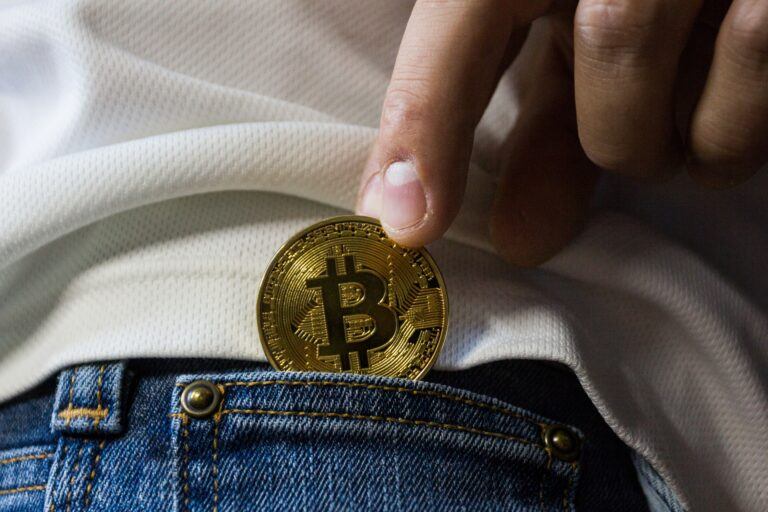On Wednesday (March 20th), Changpeng Zhao (aka “CZ”), the CEO of cryptocurrency exchange Binance, sent out a tweet that suggested he disagreed with JP Morgan executive Ron Karpovich that banks would always be needed for moving funds.
Here is the background to CZ’s tweet. You see, earlier that day, Ron Karpovich, Global Head of eCommerce Solutions at JPMorgan Chase, had been asked during an interview (on “Squawk Box”, CNBC’s morning news and talk program) about competition from “disruptors” in the FinTech space, and had replied:
“Well, ultimately behind the scenes, they are going to have to use a bank to move funds. There’s more partnership instead of competition in that space.”
And later in the interview, Karpovich had said:
“I think ultimately you will find that the technology behind the scenes will be blockchain. I don't know that you'll notice anything as a consumer in that space. I think you'll still continue to use your payment type that you prefer, be that a wallet, be that a card, be that your bank account, but behind-the-scenes, the instantaneous nature of using a blockchain or using that type of technology will make your payment faster or cheaper in that space.”
Now that we have the context, let’s take a look at CZ’s tweet:
Now, we can't agree. Many (not so small) businesses already don't use banks, and they work just fine.
JPM just don't get it, yet. (also a reason they are not a threat to #XRP)
Everyone will be in crypto. JPM will ultimately have to use #crypto. https://t.co/duTU7G7mwm
— CZ Binance (@cz_binance) March 20, 2019
Let’s break this down:
“Many (not so small) businesses already don’t use banks, and they work just fine”
One of the biggest expenses for businesses is employee salaries, and banks have traditionally been used for making these salary payments. But will it always be this way? At least, in the crypto space, there are an increasing number of companies that pay salaries in crypto.
In fact, back in August 2018, at an event organized by the Liechtenstein Cryptoassets Exchange (LCX), Michael Arrington, the founder of Techcrunch and a partner at digital asset management firm Arrington XRP Capital, apparently was told by the Binance CEO that last year 90% of Binance employees received their salaries in Binance Coin (BNB).
Also, yesterday, Jack Dorsey, the CEO of both Twitter and Square, tweeted:
#BitcoinTwitter and #CryptoTwitter! Square is hiring 3-4 crypto engineers and 1 designer to work full-time on open source contributions to the bitcoin/crypto ecosystem. Work from anywhere, report directly to me, and we can even pay you in bitcoin! Introducing @SqCrypto. Why?
— jack (@jack) March 20, 2019
Shortly thereafter, CZ sent out a tweet which said that Binance is happy to pay salaries in both BTC and BNB:
Failsafe, just in case if you don't get along with your future boss, @binance is hiring too. Won't be reporting to me, but we can pay in BTC or #BNB. Please apply on Binance homepage. https://t.co/EtPD2bFzOK
Some friendly competition for talent, lol. 🙂 https://t.co/45wteTw8l8
— CZ Binance (@cz_binance) March 21, 2019
When one lawyer replied to this tweet to ask if Binance was hiring attorneys/lawyers, CZ replied:
Adoption. We pay our lawyers in BTC/BNB. It’s an easy to filter for crypto friendly lawyers.
— CZ Binance (@cz_binance) March 21, 2019
“JPM just don’t get it, yet. (also a reason they are not a threat to #XRP)”
The question is what is it that JP Morgan doesn’t get. America’s largest bank, like most other banks, has long been a believer in the mantra “Blockchain Not Bitcoin”, and its Chairman and CEO, Jamie Dimon, has expressed his distaste for crypto on several occasions over the past few years.
However, JP Morgan did announce on February 14th its reluctant entry into the cryptocurrency space with JPM Coin, a stablecoin that will initially be used only for instant settlement of payments by its large institutional clients.
It seems that what CZ means is that until JP Morgan wholeheartedly starts believing in cryptocurrency, it will not be providing much competition for Ripple and its cross-border payments solution xRapid (which uses the digital asset XRP).
“Everyone will be in crypto. JPM will ultimately have to use #crypto.”
Although widespead adoption of crypto has not happened yet—partly due to price volatility, partly due to the need for improvements to the underlying technologies (such as more efficient blockchains that can handle Visa or Mastercard scale transaction throughput), and partly due to regulatory obstacles— it does look like cryptocurrency adoption is growing day by day.
Here are a few signs:
- Some of the world’s largest retailers, such as Switzerland's largest online retailer, are beginning to accept crypto payments.
- There are already quite a few stablecoins and many more are coming. According to the Winklevoss Twins, the price stability of stablecoins makes them much more suitable for payment for goods/services than other types of cryptocurrencies.
- Facebook is reportedly launching its own cryptocurrency later this year, and if this project is successful, this move is likely to be followed by competitors from other tech giants such as Apple or Google.
- Samsung supports through dedicated hardware and a partnership with blockchain startup Enjin the safe storage of private keys on its latest phone, the Galaxy S10.
And earlier today, CZ sent out this follow-up tweet to point out that he believes that crypto will eventually become the dominant form of payment and that resistance to this idea is futile:
I just said “everyone will be in crypto”. And more adoption is better than less. I never supported or not supported any particular bank.
I would welcome everyone to join crypto, which is inevitable anyway. Better get use to it rather than fight it.
— CZ Binance (@cz_binance) March 21, 2019
Featured Image Credit: Photo via Pexels.com








